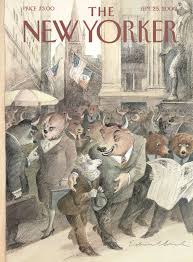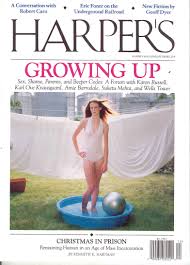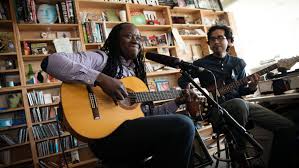 SOUNDTRACK: D.R.A.M.-Tiny Desk Concert #596(February 1, 2017).
SOUNDTRACK: D.R.A.M.-Tiny Desk Concert #596(February 1, 2017).
 I had never heard of D.R.A.M. before (even though apparently his song “Broccoli” has sold 4 million records). So I was quite surprised to see the start of this blurb:
I had never heard of D.R.A.M. before (even though apparently his song “Broccoli” has sold 4 million records). So I was quite surprised to see the start of this blurb:
We all love a good redemption story: We’re front and center to watch our heroes get knocked down, and then we cheer for them to triumphantly rebound. What we’re witnessing with Shelly Massenburg-Smith — a.k.a. D.R.A.M. — is the culmination of a story marked by resilience and stubborn strength.
Making a hit record in the music industry is extremely difficult, and in 2015, D.R.A.M.’s debut single “Cha Cha” was on the brink of exploding. It was getting played in clubs across the country and bubbling on the charts…. Then Drake’s “Hotline Bling” happened. The reports are conflicting as to the inspiration for the record, but there are glaring similarities in the sound of each. “Hotline Bling” was even originally billed as the “Cha Cha” remix by Beats 1, where the song made its debut. Needless to say, “Hotline Bling” practically swallowed “Cha Cha,” but D.R.A.M. didn’t whine about it. He went back to the drawing board, crafting another smash. “Broccoli” became one of 2016’s biggest hits while setting up the release of his debut album, Big Baby D.R.A.M.
We recently invited D.R.A.M. to NPR to lend us his jovial spirit and brighten our workday; after all, his primary aim is to spread love through music. He was jarred by the Tiny Desk setting for a moment before the cameras started rolling. He’s accustomed to touching every corner of the stage, but like a pro, he walked to the desk, activated his signature smile and bounced through various highlights from his catalog. D.R.A.M., whose name stands for Does Real Ass Music, wrote his first selection, “Cash Machine,” right after he’d received his first big music check.
The crowd beamed more with each performance, leading up to a climactic rendition of “Broccoli.” The energy is all fun and games, but his talent is no joke: “Broccoli” is nominated for a Grammy this year, right alongside “Hotline Bling.” A victory would provide a fitting end to this chapter of D.R.A.M.’s career, but regardless of the outcome, he’s already victorious: Far removed from the “Hotline Bling” shadow, he’s already creating bigger songs and more memorable moments, like this one at the Tiny Desk.
His band consists of D.R.A.M. (vocals); Rogét Chahayed (keys); Taylor Dexter (drums); Wesley Singerman (guitar). And the video begins with him walking through the crowd toward the Tiny Desk. Unlike most artists, he plays a whopping five songs! And while he is, indeed, full of smiles and joy, I couldn’t help but think that he was almost a goof. He practically seemed like a Saturday Night Live spoof of a rapper.
“Cash Machine” has lyrics like “I love it when you talk to me / my cash machine” and it is seriously all about how happy he was to get a lot of money. It’s almost naive (except for all of the cursing). He says that he hopes all the ladies like his second song because it was written for them. And once again, the lyrics are so strangely innocent and almost naive. The lyrics of “Cute” are “I saw you on your Instagram and I think you’re cute…. Girl we need to go out on a date / We can really do a little something / If it’s cool I’ll pick you up at 8.” And the music is sweet and dreamy too.
He says that he’s from Hampton, Virginia, which explains “Sweet VA Breeze.” He says it’s a song about when things were “a little more simpler.” He raps about “sitting in the treehouse” with the rather puzzling bridge of “Real love, feel love, taste love, smoke love.”
The next song actually appears on Chane the Rapper’s record Coloring Book. He introduces “Special” by saying that it’s “nice to put a little motivational message out there in the world. There’s a lot of fucked up shit going on… if we’re gonna be frank.” He’s got a nice singing voice on this one. It’s a rather sweet ballad, with the nice sentiment: “Everyone is special / This I know is true.”
And finally we get to the big hit that I’d never heard. It is such a strange song and the delivery here is even stranger. He sings the opening lines in an over-the-top delicate almost operatic falsetto.
In the middle of the party, bitch get off me
In the cut I’m rollin’ up my broccoli
Ya I know your baby mama fond of me
All she want to do is smoke that broccoli
Whispered in my ear she trying to leave with me
Said that I can get that pussy easily
Said that I can hit that shit so greasily
I’m a dirty dog, I did it sleazily
The room is cracking up by this time.
And more lyrics:
Couple summers later I got paper
I acquired taste for salmon on a bagel
With the capers on a square plate
At the restaurant with the why you got to stare face
To know I either ball or I record over the snare and bass
Rapper face, dread headed
Golden diamond teeth wearin’
They just mad cause I got that cheese, bitch, I keep dairy
The original song (I had to check it out) has this keyboard that sounds like a penny whistle–so childish and goofy. But I love the big throbbing bass line that comes after every line–almost unexpectedly late.
He’s surprisingly vulgar, but he’s so goofy that it’s hard not to like him.
[READ: January 14, 2017] “JB & FD”
When Wideman wrote this story I’m sure he had no idea that Frederick Douglass would be exhumed into public consciousness because Trump is an idiot.
“Frederick Douglass is an example of someone who’s done an amazing job and is being recognized more and more, I noticed,” he said. “Harriet Tubman, Rosa Parks and millions more black Americans who made America what it is today,” he continued. “Big impact.”
I miss Barack Obama for dozens of reasons, but this guy’s mangling of English is certainly a big reason.
Wideman does not mangle English, of course. And yet I haven’t really enjoyed the stories I’ve read by him. And this one proved to be even more challenging for me than his others.
The JB is John Brown. The FD is Frederick Douglass. And the problem is that I don’t know enough about either one. Heck, I wasn’t even sure if they lived at the same time (I have since looked it up–they lived at the same time and admired each other). But even with that background, this piece is just confusing.
It is broken down into several short numbered sections.
(1) is all about Douglass finding his glasses and having dread.
(2) begins as a letter to Douglass, with the comment that Douglass remembers no beard, not wearing one himself nor a beard on Brown’s gaunt face (but every picture of Douglas has him with a beard).
(3) sees Douglas watch himself step to a podium to discuss “The Woman Question” and then goes home and drops dead [this is historically accurate].
(4) is written from the I point of view, apparently written about John Brown and his upbringing.
(5) is in the first person from John Brown’s POV (I had to look up who had the sons with which names). I believe it is a letter to Douglass.
(6) contains a letter written by Mahala Doyle and given to John Brown as she awaited execution.
(7) is of Brown’s trip to Kansas and his time in prison.
(8) has three parts. In 1856, a note from Mrs Thomas Russell. In 1858 John Brown molts (“His feathers shed. A change of color”). In 1859, a letter to Brown (presumably from Douglass).
(9) My name is John Brown and I want my son to hear the story of my name. In this section someone is dictating to “this good white lady” who is writing every word down to send to his son in Detroit. And the entire thing is written in dialect.
Beyond that, I’m not sure if this was meant to be a historically accurate portrayal, an imagination of these two minds meeting or something else entirely. I read it twice and never really “got it.”
Read Full Post »





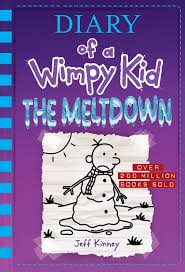 SOUNDTRACK: TAME IMPALA-Tiny Desk (Home) Concert #69 (August 24, 2020).
SOUNDTRACK: TAME IMPALA-Tiny Desk (Home) Concert #69 (August 24, 2020). With so many artists that I’ve never heard of doing really long Home Tiny Desk Concerts, why on earth did Tame Impala, one of the biggest bands around, only play for 16 minutes?
With so many artists that I’ve never heard of doing really long Home Tiny Desk Concerts, why on earth did Tame Impala, one of the biggest bands around, only play for 16 minutes?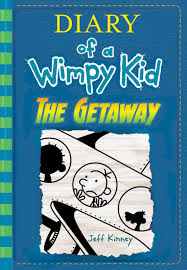 SOUNDTRACK: VÍKINGUR ÓLAFSSON-Tiny Desk (Home) Concert #63 (August 12, 2020).
SOUNDTRACK: VÍKINGUR ÓLAFSSON-Tiny Desk (Home) Concert #63 (August 12, 2020). Víkingur Ólafsson has a fantastic name. But even better is his way of talking about the music he plays. He adds so much detail and information about these songs that they really come to life. I don’t often buy classical music anymore, but I absolutely want to get his new record of Rameau and Debussy pieces).
Víkingur Ólafsson has a fantastic name. But even better is his way of talking about the music he plays. He adds so much detail and information about these songs that they really come to life. I don’t often buy classical music anymore, but I absolutely want to get his new record of Rameau and Debussy pieces).